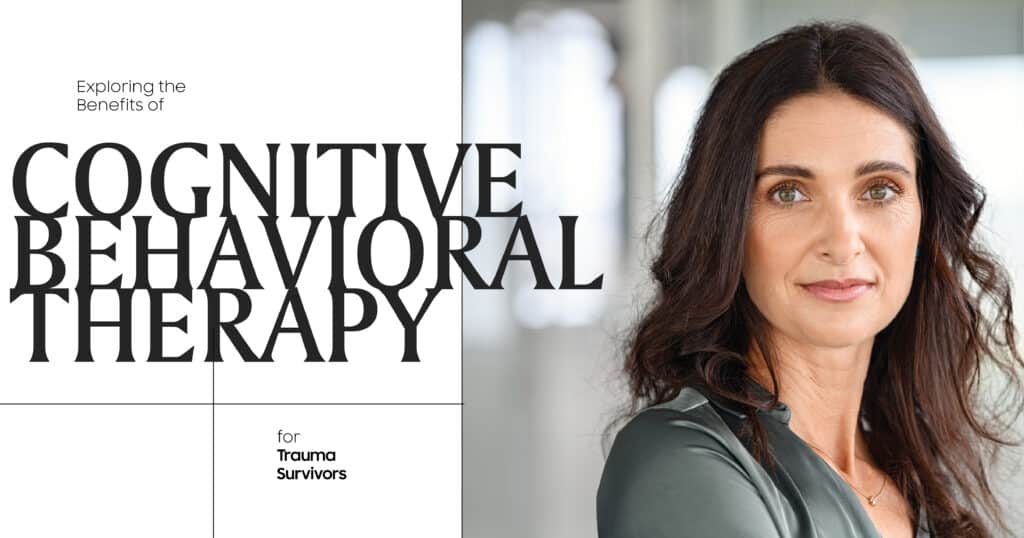Introduction
Let’s face it: the road to recovery from trauma isn’t a walk in the park. It’s more like navigating a complex maze with no clear directions. That’s where Cognitive Behavioral Therapy (CBT) comes into play, offering a well-lit path through the darker twists and turns of post-traumatic stress. This article dives deep into how CBT not only helps trauma survivors face their past but also empowers them to reclaim their lives with renewed vigor and hope.
Understanding Trauma and Its Aftermath
Before we delve into the nuts and bolts of CBT, it’s crucial to get a handle on what trauma entails. Trauma can rear its ugly head following any deeply distressing or disturbing experience, leaving a trail of emotional and psychological upheaval in its wake.
Common Symptoms of Trauma:
- Intrusive memories or nightmares about the event
- Severe anxiety or hyper-vigilance
- Emotional numbness or withdrawal from social interactions
- Irritability or mood swings
These symptoms can act like uninvited guests that just won’t leave, profoundly affecting a person’s quality of life.
Exploring the Benefits of Cognitive Behavioral Therapy for Trauma Survivors
CBT is more than just a sit-and-chat kind of therapy. It’s a proactive approach that engages the mind and behaviors in a healing dance. Here’s how it steps up to the plate:
Cognitive Restructuring: Rewiring the Traumatic Brain
CBT helps survivors unpack the baggage of distorted thinking brought on by trauma. This process involves:
- Identifying and Challenging Negative Thoughts: Through guided discovery, therapists help clients pinpoint irrational or harmful thought patterns and challenge their validity.
- Replacing Negative Thoughts with Realistic Ones: This isn’t about wearing rose-colored glasses but rather adjusting the lens to see life more clearly.
Behavioral Techniques: Facing Fears Head-On
By gradually exposing survivors to elements of their trauma within a safe environment, CBT helps reduce the power these triggers hold:
- Systematic Desensitization: Slowly but surely, this method helps individuals reduce their sensitivity to distressing memories.
- Stress Inoculation Training: Equipping survivors with coping skills to handle stress before it escalates.
Building a Toolkit for Resilience
CBT arms survivors with practical strategies that foster resilience, enabling them to:
- Manage Everyday Stress: Learn to tackle day-to-day anxieties effectively.
- Enhance Emotional Regulation: Gain control over emotional responses rather than being led by them.
- Improve Interpersonal Relationships: Navigate social interactions more smoothly with less fear and more confidence.
Real-Life Applications of CBT for Trauma Survivors
The proof is in the pudding, as they say. Many trauma survivors have turned their lives around thanks to CBT, finding new strengths in what seemed like insurmountable weaknesses. From veterans battling PTSD to individuals recovering from abuse, the stories of transformation are both profound and inspiring.
FAQs: Curious Minds Want to Know
How long does CBT typically take to show results?
CBT isn’t a magic pill; it varies from person to person. However, many can see improvements in 12 to 16 sessions.
Is CBT suitable for all types of trauma?
Cognitive Behavioral Therapy is versatile and can be tailored to various forms of trauma, whether it’s a single event or a series of ongoing stressors.
Can CBT be combined with other forms of therapy?
Absolutely! CBT often works well alongside other therapeutic approaches, providing a comprehensive treatment plan.
Final Thoughts: Why Give CBT a Go?
If you’re on the fence about whether CBT is right for you, consider this: What have you got to lose compared to what you might gain? Discovering the benefits of Cognitive Behavioral Therapy for trauma survivors isn’t just about coping with past pains; it’s about building a hopeful, healthier future.





